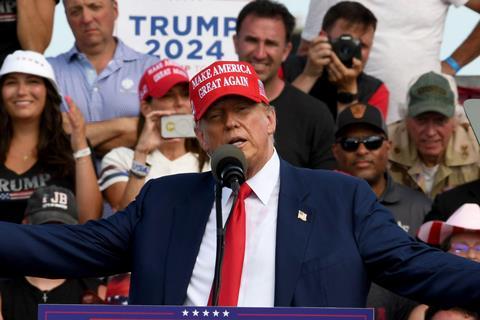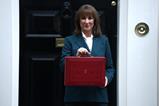George Pitcher takes a look at what Trump’s victory in the 2024 US presidential election means for Christian Nationalism around the globe, and the troubling precedent that it sets

Sometimes it’s a single, ordinary voter’s voice that catches the ear and stays in the head until an election is over.
So it was for me when Jessica Mendoza, a 35-year-old mother in the swing state of Arizona, told The Guardian’s US reporter, Rachel Leingang, why she was voting for Donald Trump: “I have two kids and I really want to see a change for them and a better future. We’re also Christians, so we voted with our morals as well.”
Go figure, as they say in Arizona.
Now, it may be that Ms Mendoza is vehemently pro-life and approves of Trump enabling the Supreme Court to overturn Roe v Wade, abolishing abortion as a US federal right. But, if so, that would make it her one overriding moral principle that – and I’m not going to resist this verb – trumps all others.
The Church is called to make disciples of all nations, rather than to be nationalists
Lest we forget, the new president-elect has been convicted of multiply crimes, including 34 counts of falsifying business records in an attempt to cover up an alleged sexual encounter with porn star Stormy Daniels in the run up to the 2016 presidential election.
To date, at least 26 women have publicly accused the politician and business tycoon of rape, sexual assault and other sexual misconduct (he has strenuously denied all charges). To put it plainly, he is a foul-mouthed misogynist, a proven liar and a serial fraudster. He has been accused of insurrection and even being an apologist for fascism.
In what way, exactly, does that offer a model for Christians to vote with their “morals as well”? My supposition is that there’s something else going on here. And that something might be captured under the catch-all, right-wing banner of Christian Nationalism.
Beyond the slogans
The Trump campaign assiduously courted what has been traditionally dubbed the Christian Right. Witness the rallies held by Christian coalitions such as Believers for Trump. But the old Christian Right has moved on from the days of a checklist of moral-majority issues, such as abortion, transgenderism or the death penalty.
Making America Great Again (MAGA) isn’t just a handy baseball cap slogan. It taps into a deep-seated sense that American conservatives are God’s chosen people. This goes way beyond simply seeing the US as the world’s policeman. It’s the US as the world’s saviour.
We’re not talking about a shining light here, an exemplar of the worldwide gospel that acts as a model for heathen nations. We’re talking about Armageddon, the ultimate battle between good and evil. And about the defeat of Satan’s demons, who are, naturally, to be found among liberal elites, their complicit media and, conveniently, the Democratic Party.
Hence Christian Nationalism. The chosen people have moved on from the Jewish diaspora to found the promised land of the United States. They look back not to the old country of England, but to an Israel that must be defended at all costs, from whence the second coming of the Christ will emerge. Look out Palestinians.
More pragmatically, for Trump at least, these Christian Americans share the spirit of MAGA, not because it’s Trump’s will, but because it’s God’s. That, ultimately, is the motivation for many Christians who voted for Trump and their sense of morality as an imperative for doing so.
A dubious track record
A problem with this, if Trump could recognise it, is that Christian Nationalism has a more than dubious track record of late. His self-declared pal, Vladimir Putin of Russia, has made a very effective job of co-opting the Russian Orthodox Church to his version of Christian Nationalism in order to regain expropriated parts of the motherland, such as Ukraine.
Lest we forget, the new president-elect has been convicted of multiply felonies
Trump might be expected to cut a deal with Putin for a part, if not all, of Ukraine, at least tacitly by refusing to continue to arm President Zelensky’s resistance forces. There are dark precedents for such appeasement, not least Adolf Hitler’s rapacious lebensraum invasions to the east and west in Europe. Hitler, too, indulged the Church in that nationalist adventure.
Worth pondering, perhaps, as we approach Remembrance Sunday this weekend. At churches across Britain, we will honour the dead of our nation and of our allies, including America, who fought and died in the defeat of European fascism. In doing so, we might ask ourselves with whom Christian Nationalism allies itself.
Called to all nations
Thomas Paine, the 18th-century English-born Founding Father of America, wrote: “My country is the world, and my religion is to do good.” He opposed religion in general and ridiculed Christian doctrine in particular. On that latter I demur.
The American Pledge of Allegiance, which opens its congressional sessions, requires its subscribers’ loyalty to “one nation under God”. That may present no problem for its new breed of Christian Nationalists.
But, for this Christian, the world is called to be one nation under God. It’s why the Church is called to make disciples of all nations, rather than to be nationalists. In that, I may now find I have more in common with Paine than with the nation he co-founded and the Christians who live there.







































1 Reader's comment